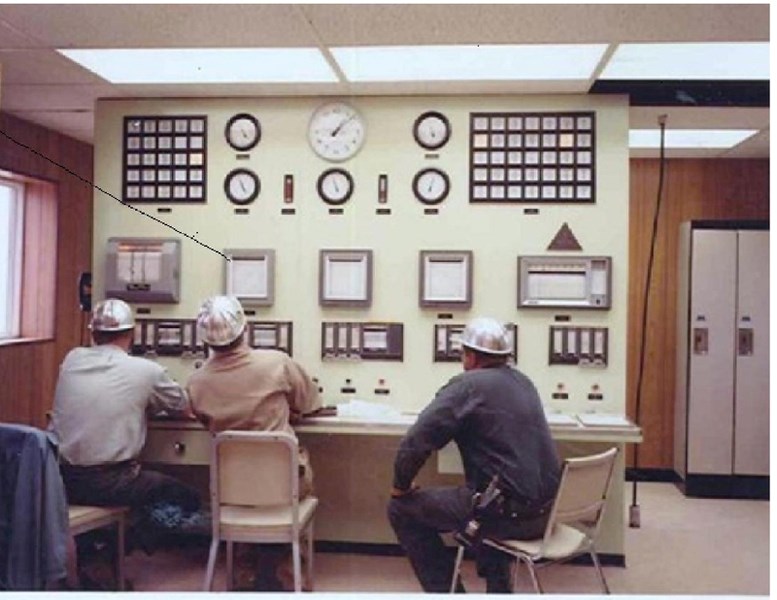Shell's Burnt Timber gas plant will process its last molecule of gas on June 18, 2014, after 44 years of exceptional service.
Forty-four years ago, you could buy a beer for seven cents and type a memo on an electric typewriter (not necessarily in that order).
Forty-four years ago, the Burnt Timber gas plant began operating in Central Alberta. To the outside world, it was just a gas plant, designed to last for 25 years. But thankfully, to others, it was more than that.
Because of the determination of an incredible team of people, the Burnt Timber complex didn't go extinct with the typewriter, but instead helped keep the heat on for our growing world for many years.
To the outside world, the Burnt Timber plant processed enough gas to continuously heat 325,000 homes for the life of the asset. But for some, Burnt Timber was even more than that...
“I was the second woman hired at the Burnt Timber plant back in 1979. It was still relatively uncommon for women to work in field locations. I remember my manager at the time was thrilled to show me the purple toilet and sink in the new women's washroom he had installed,” said Karen Hallet, retired Burnt Timber employee for 29 years.
“Everything was done manually back then so I really learned production accounting from the ground up. After going back to college in the late 1980s, I went on to become a business analyst for the Central Alberta region for Shell.
“It's been an incredible career, and I feel privileged to have worked with so many great people over the years.”
To the outside world, the Burnt Timber plant was a facility pioneering new technology to drill 56 wells in the field. But for some, Burnt Timber was even more than that…
“Back when I first started, Burnt Timber was in the bush. To get out to the field, you had to take a narrow gravel road from the plant,” said Barry Dickau, Burnt Timber field operator for 35 years.
Barry remembers the day he had to check a well site in the field and got quite the shock: “As I came around the corner of the fence -- there he was, staring at me: a grizzly bear. He was a lot bigger than me; probably a 400- to 500-pound bear.
My truck was about 200 feet away and the bear was jumping up and down on his hind legs. I backed away slowly and got in my truck, and he made sure to keep me in his eyesight the whole time.”
To the outside world, Burnt Timber was a network of 624 kilometres of pipe. But for those who lived and worked in the area, it was a community that helped each other. Working together with their sister asset, Caroline, the employees at Burnt Timber raised over $1 million for the United Way.
“We all formed a cohesive organization; there was always a helping hand when you needed one. We felt like Burnt Timber was our own; when something needed to be done, we'd band together to do it,” said Lonnie Halladay, retired Burnt Timber employee for 17 years.
“We were the same age when we started here. We all raised our kids together. Worked through juggling children. Any one of these guys would have come and bailed me out if I had trouble at the farm; it was a very tight-knit community. Burnt Timber has its own culture, even today,” said Hallet.
To the outside world, Burnt Timber was a plant that produced over 4 million tonnes of sulphur -- that's over 100,000 truckloads. For others, it was a facility that provided local full-time employment for over 300 people. And for some, it was even more than that . . .
“We've seen the discovery of new fields, plant expansions every decade, strong relations built between employees, contractors, and the community, multi-generational employment and friendships that have lasted a lifetime. Working with this community has been an honour and a privilege. I just want to say thank you to everyone again, for all their support,” said Mathieu Rae, Burnt Timber production superintendent.
- Carolyn Tucker, a communication advisor with Shell Upstream Americas Unconventionals.



